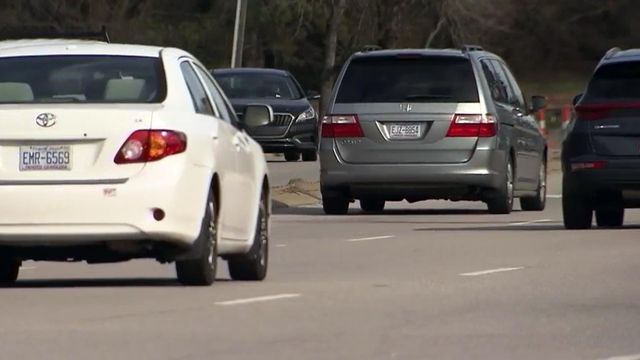Pandemic could be to blame for NC's jump in fatal crashes
The number of fatal crashes on North Carolina's highways has gone up this year, even though the number of cars on the road went down during the pandemic.
Posted — UpdatedWith three days left in the year, 1,573 people have died in vehicle crashes statewide in 2020, an 8 percent increase from a year ago, said Mark Ezzell, director of the Governor's Highway Safety Program.
"That is just incredible, especially given the decrease in traffic volume," Ezzell said.
By some estimates, traffic volume has been down as much as a third this year, especially during the spring, when a statewide stay-at-home order was in place to slow the spread of coronavirus.
Raleigh driver Scott Johnston said he noticed a lot more speeders than usual back then.
"At the beginning of the pandemic, as far as like out on the highway, like [Interstates] 540 [and] 40, people were really flying with the lighter traffic," Johnston said.
Ezzell said the open roads did lead to more speeding – and likely more fatal crashes.
"Congested traffic, for better or worse, does have one positive effect, and that is you drive slower," he said.
The pandemic also likely created more distracted drivers, contributing to even more fatal crashes, he said.
"We talk a lot about physical distractions – the cell phone and other people in the car. We don’t talk much about emotional distractions," he said. "I think they have really been paramount this year. We’re worried about our jobs, we’re worried about our health, we’re worried about our future."
State officials are working on programs to reverse those trends.
"In the meantime," Ezzell said, "we’re just encouraging people to count to 10 before they get behind the wheel, take a deep breath, watch for other drivers [and] put on their seatbelt."
• Credits
Copyright 2024 by Capitol Broadcasting Company. All rights reserved. This material may not be published, broadcast, rewritten or redistributed.





